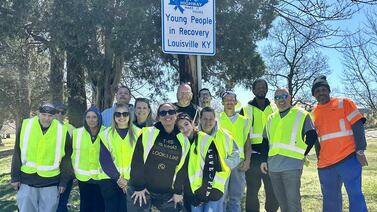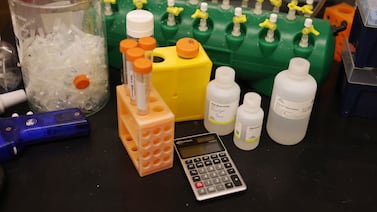Public health, explained: Sign up to receive Healthbeat’s free Atlanta newsletter here.
While Georgia influenza and Covid-19 rates appear to be lower than last year at this time, flu circulation has reached a level that concerns some local health officials.
In data published by the Centers for Disease Control and Prevention, the percentage of state hospital visits for flu-like illnesses remains higher than the national average as of the first week of December.
In the metro Atlanta area, there were 12 hospitalizations for influenza throughout Thanksgiving week, according to the Georgia Department of Public Health. While that’s one of the largest weekly in-patient admission counts of this fall, it’s only about 15% of the rate experienced last year at that time. CDC emergency department data further indicate that Georgia respiratory virus visits, including for influenza, remain less common than last respiratory disease season.
At the Thursday Cobb County Board of Health meeting, Cobb and Douglas Public Health epidemiology and infectious disease director Rachel Franklin said Georgia flu transmission levels had switched from “moderate” to “high” earlier that week. She said that trend contrasts local and state Covid rates, which remain at relatively low levels.
“Right after Thanksgiving, right on time, it went up to high,” she told the Cobb County health board members. “Not too late for the flu vaccines, but remember that they do take about two weeks to actually give you some protection.”
A CDC survey from the last week of November estimates that in Georgia, about 30% of adults and 32% of kids have received a flu vaccine this season. Both of those approximations are lower than their national counterparts, but small Georgia sample sizes mean it’s difficult to determine how different the state and U.S. percentage of vaccinated residents actually is.
Incidents of respiratory syncytial virus, or RSV, grew to high levels throughout November. But recent wastewater and hospitalization data further indicate that the rate of new cases is plateauing, if not declining. Nationally, there appears to be less frequent but increasing circulation of the virus.
Allen Siegler is a reporter covering public health in Atlanta for Healthbeat. Contact Allen at asiegler@healthbeat.org.







